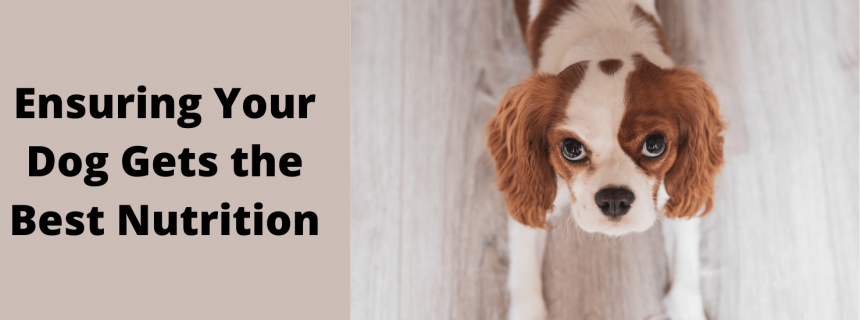Ensuring Your Dog Gets the Best Nutrition
What are a puppy's nutritional requirements?
Puppies should be fed a balanced diet formulated for growth. Look for high-quality puppy food from a brand you trust. There is a great deal of conflicting information regarding proper diet and nutrition in dogs. We recommend carefully evaluating pet foods to determine whether the manufacturer meets these requirements as a minimum:
- Employs at least one full-time qualified animal nutritionist (PhD or DVM-ACVN)
- Diets are tested using AAFCO feeding trials
- Controls supply line and has good quality control measures in place
For more information, check out Tufts University Veterinary Nutrition Center (https://vetnutrition.tufts.edu/)
How do I know how much to feed my puppy?
Foods formulated for growth should have a feeding guide on the back directing the amount to feed based on current age and expected adult weight. We recommend following these guidelines and checking in with your vet if you feel your puppy isn’t eating enough.
Do I feed my puppy dry food, wet food, or a combination?
Provided you are feeding a diet formulated for growth, feeding dry food, wet food, or a combination is a personal choice. In younger puppies, softening the food by soaking in warm water for a few minutes is sometimes helpful
Is free feeding my puppy okay or is it better to stay on a schedule?
We recommend feeding your puppy on a schedule. Free feeding at a young age is usually fine, but as your pup grows, having free access to food can lead to overeating. We recommend splitting their food into 2-3 meals per day is helpful for setting a good routine and ensuring healthy growth.
That being said, we also recommend portioning out a fair amount of their total food for the day for use in training and enrichment activities such as puzzle toys and foraging. These activities are important for mental stimulation and relationship building.
Should my puppy eat inside or outside the crate?
If you are planning on crate training your puppy, using their crate for mealtimes can be helpful. Crates are also useful when you have multiple pets that need to be fed. Crates allow for easy separation to avoid peer pressure while eating and prevent resource guarding from becoming a bigger issue. Just keep in mind that a visual barrier will be helpful if the crates are close together.
When should my puppy switch to adult food?
When puppies switch to adult dog food is somewhat dependent on their size and breed, but also on the food you are feeding. Most puppies transition between 10-14 months. You will often find recommendations to switch puppies sooner - closer to six months.
We do not recommend this as puppies continue to grow until they are 12-18 months and we need to meet their nutritional needs with a diet formulated for growth.
What do I do if I already suspect my puppy is gaining too much weight?
Please check in with your veterinarian as puppies go through growth spurts just like kids do. Your veterinarian can help you determine if your pup is getting too heavy or is just getting ready to sprout up!
What if I notice my puppy isn't thriving?
If you have any concerns about your puppy’s wellbeing, please check in with your veterinarian as soon as possible. Puppies’ immune systems are not fully developed and they are prone to risky behaviors such as eating things they’re not supposed to. Early intervention is key to good outcomes so never hesitate to reach out if you have concerns!
Are treats okay for my puppy?
Of course! Just keep in mind the total number of calories your puppy is taking in each day. It’s also good to consider that puppies are often very food motivated and may not need more than a piece of their normal kibble as a reward for pottying outside or learning to sit. It’s better to use the lowest value treat that will work in a given situation. Save the really good stuff for working on tough training issues.
Is it ever okay to give my puppy human food?
It’s okay to share a small amount of safe human foods with your pup. As we mentioned before, moderation is important, and try to use fruits and vegetables when possible.
For a list of foods to avoid, check out the ASPCA list of foods to avoid.
Always remember that are we partners in your pet's health care. so please do not hesitate to reach out to us if you have any questions or concerns! Nutrition is very important to your dog's health and we are always here to help!



